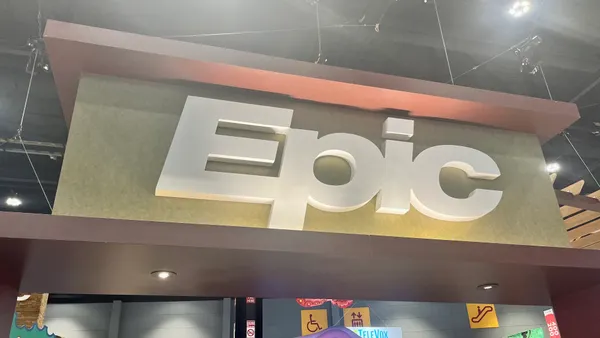Dive Brief:
- Epic and Nuance Communications are joining to leverage voice assistance technology in EHRs with the aim of reducing reporting burden and improving patient care.
- Using speech technology compatible with Epic apps, doctors will be able to retrieve schedules, look up patient information and check lab results and medication lists.
- The system will work with Epic's Rover and Haiku workflow app, the companies said, noting more than 100 organizations already access Nuance's Dragon Medical through Haiku.
Dive Insight:
The new voice assistant tool comes as organizations are looking for add-ons to optimize their EHRs and ease clinical burnout. In a 2017 survey by Nuance and HIMSS Analytics, 83% of healthcare leaders expected their organization to realize their EHR's full benefits and 68% said adopting new technology and tools would improve clinical satisfaction. Among the capabilities leaders are looking to add are increased mobility and speech recognition.
Studies have repeatedly shown a strong link between administrative chores and physician burnout. For example, a 2017 report found primary care doctors spend more than half their workday on EHR tasks. A different study showed that computer tasks leave doctors just 27% of their time to actually see patients.
"With the availability of these advanced capabilities and our shared vision for ambient clinical documentation, we look forward to continuing our development with Nuance and delivering next generation conversational AI-powered virtual assistant solutions to the Epic client community," Adam Whitlatch, vice president of research and development at Epic, said in a statement.
Vanderbilt University Medical Center is helping to integrate Nuance's Dragon Medical virtual assistant technology into Epic apps.
Other tech firms also have their eye on the speech recognition, which could be lucrative if it cuts down on reporting burden and increases patient care and engagement. A Google team is working with Stanford Medical researchers to assess AI and voice recognition in generating EHRs, with a focus on helping doctors take notes. The effort will likely draw on Google's exiting voice technologies in its Home, Assistant and Translate products. CNBC recently reported the company is seeking voice technology experts to join its Google Brain team.
This is not Epic and Nuance's first collaboration. The companies previously announced plans to deliver computer-assisted physician documentation embedded within Epic's EHRs. The aim is to provide real-time clinical documentation improvement feedback to physicians at the point of care. The system leverages Nuance's AI technology on Epic's NoteReader CDI module.













